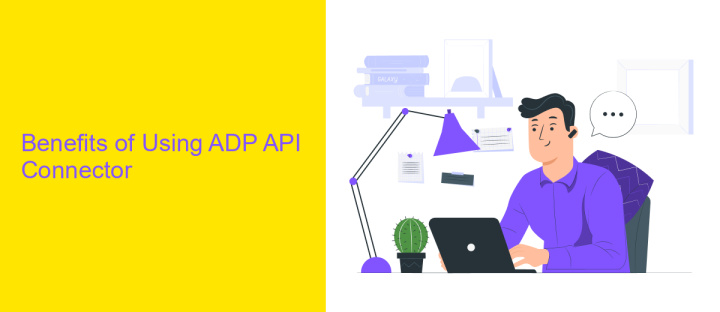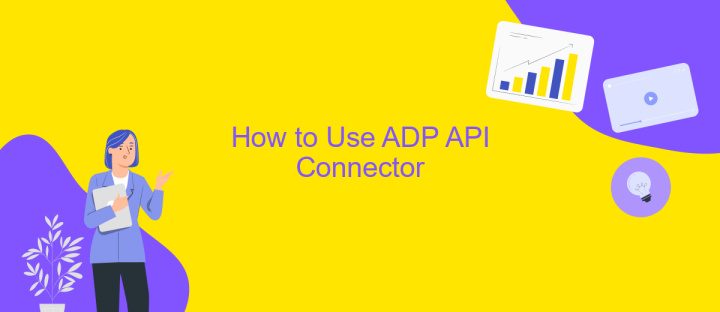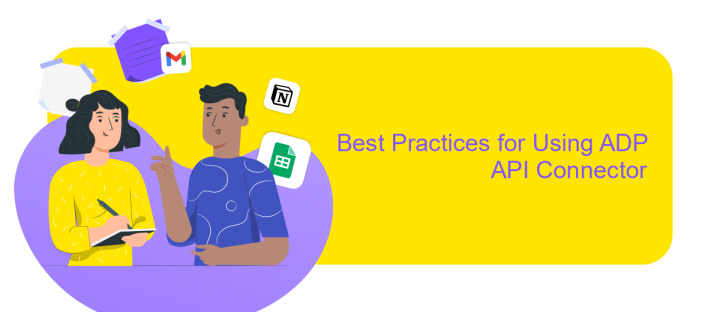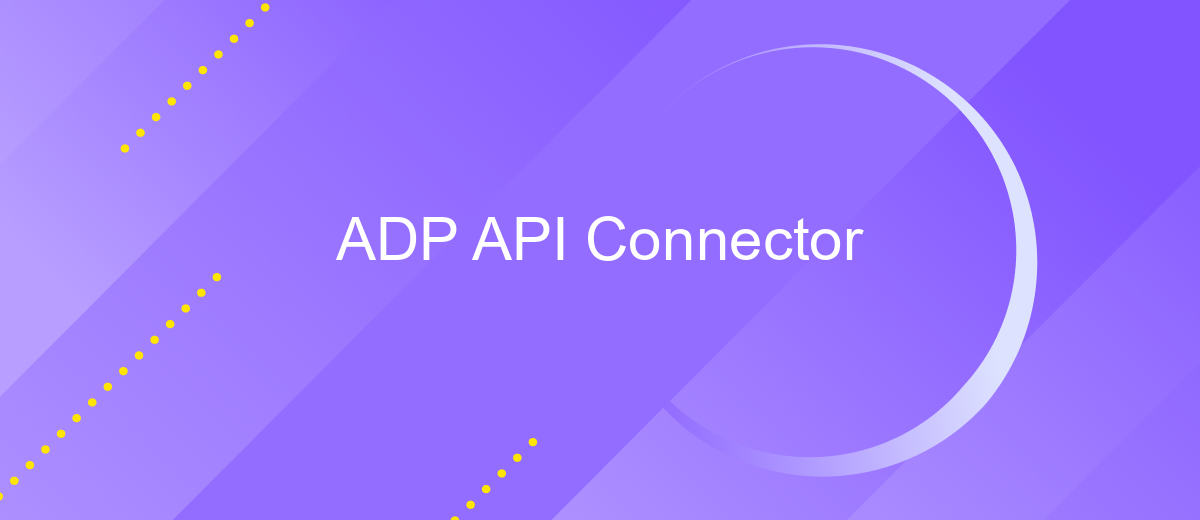ADP API Connector
The ADP API Connector serves as a vital tool for seamless integration between ADP's comprehensive suite of human capital management solutions and your existing business systems. By leveraging this connector, organizations can effortlessly synchronize payroll, HR, and workforce data, ensuring real-time accuracy and efficiency. This article explores the key features, benefits, and implementation strategies of the ADP API Connector, empowering businesses to optimize their operations and drive informed decision-making.
Introduction
The ADP API Connector is a powerful tool designed to streamline the integration process between various applications and ADP's comprehensive suite of human capital management services. By leveraging this connector, businesses can seamlessly access and manage employee data, payroll information, and other critical HR functionalities. This integration capability allows organizations to enhance their operational efficiency and ensure data consistency across platforms.
- Facilitates seamless data exchange between ADP and third-party applications.
- Supports a wide range of HR functionalities, including payroll, benefits, and time management.
- Ensures data security and compliance with industry standards.
- Reduces manual data entry and minimizes errors.
- Enables real-time data synchronization and reporting capabilities.
Implementing the ADP API Connector can significantly reduce the time and resources required for integrating disparate systems, providing a unified solution for managing workforce data. By automating key HR processes, businesses can focus on strategic initiatives and drive growth. Whether you are a small business or a large enterprise, the ADP API Connector offers scalable solutions tailored to meet your specific needs, ensuring a seamless and efficient HR management experience.
Benefits of Using ADP API Connector

Integrating the ADP API Connector into your business processes offers a multitude of advantages, significantly enhancing operational efficiency. By automating data transfer between ADP and other essential business applications, the connector reduces the need for manual data entry, minimizing errors and saving valuable time. This seamless integration ensures that your HR, payroll, and other administrative systems are always up-to-date, providing accurate and real-time insights into your workforce management. The ADP API Connector also facilitates compliance with regulatory requirements by ensuring consistent and accurate data reporting, thereby reducing the risk of costly compliance violations.
Furthermore, the ADP API Connector is highly adaptable, allowing businesses to customize integrations to meet their specific needs. Tools like ApiX-Drive make this process even more accessible, enabling users to set up and manage integrations without extensive technical knowledge. With ApiX-Drive, businesses can automate workflows, synchronize data across platforms, and enhance productivity without the need for complex coding or IT intervention. This user-friendly approach to integration not only streamlines operations but also empowers businesses to focus on growth and strategic initiatives, leveraging their human capital to its fullest potential.
How to Use ADP API Connector

The ADP API Connector is a powerful tool that allows seamless integration of ADP services into your applications. To begin using the ADP API Connector, you need to first register your application with ADP to obtain the necessary credentials. This involves setting up an account and generating client ID and secret keys, which are essential for authentication and authorization processes.
- Register your application on the ADP Developer Portal to obtain your unique client ID and secret.
- Configure your application to handle OAuth 2.0 authentication, ensuring secure access to ADP services.
- Use the provided API endpoints to connect with various ADP services, such as payroll, HR, and benefits management.
- Test your integration in a sandbox environment to ensure all functionalities are working as expected.
- Once testing is complete, move to the production environment for live data access and operations.
By following these steps, you can efficiently integrate ADP services into your applications, enhancing their capabilities and providing users with comprehensive HR solutions. Ensure to regularly check for API updates and maintain compliance with ADP's security standards to safeguard data integrity and privacy.
Best Practices for Using ADP API Connector

When integrating the ADP API Connector, it's crucial to ensure seamless communication between your systems and ADP's services. Begin by thoroughly reviewing the API documentation to understand the available endpoints and their functionalities. This will help in designing a robust integration strategy that aligns with your business needs.
Security should be a top priority when using the ADP API Connector. Implement strong authentication and authorization measures to protect sensitive data. Regularly update your systems to incorporate the latest security patches and enhancements. Additionally, monitor API usage to detect any unusual activity that could indicate a security breach.
- Test API calls in a sandbox environment before deploying them to production.
- Utilize error handling mechanisms to manage unexpected API responses effectively.
- Implement rate limiting to avoid exceeding API usage quotas.
- Ensure data consistency by synchronizing data between your systems and ADP regularly.
Finally, maintain clear and open communication with ADP support. They can provide valuable insights and assistance if you encounter any issues. By following these best practices, you can maximize the efficiency and reliability of your integration with the ADP API Connector.
Conclusion
In summary, the ADP API Connector is a powerful tool that enables seamless integration between ADP's vast array of services and other business applications. By leveraging this connector, organizations can streamline their HR processes, enhance data accuracy, and improve overall operational efficiency. Its ability to facilitate real-time data exchange ensures that businesses can maintain up-to-date records and make informed decisions quickly. Additionally, the connector's user-friendly interface and robust security measures make it an ideal choice for companies looking to optimize their HR workflows without compromising on data integrity.
For those seeking a straightforward solution to set up and manage these integrations, platforms like ApiX-Drive offer invaluable support. ApiX-Drive simplifies the process of connecting ADP with various applications, reducing the technical burden on IT teams and allowing businesses to focus on their core functions. By using such integration services, companies can maximize the potential of the ADP API Connector, ensuring a smooth and efficient transfer of information across their digital ecosystem. As a result, businesses can achieve greater agility and responsiveness in today's fast-paced environment.
FAQ
What is the ADP API Connector, and how does it work?
How can I integrate ADP API with my existing software?
What kind of data can I access through the ADP API?
Is there a way to automate data synchronization between ADP and other applications?
What are the security measures in place for using the ADP API?
Time is the most valuable resource in today's business realities. By eliminating the routine from work processes, you will get more opportunities to implement the most daring plans and ideas. Choose – you can continue to waste time, money and nerves on inefficient solutions, or you can use ApiX-Drive, automating work processes and achieving results with minimal investment of money, effort and human resources.

